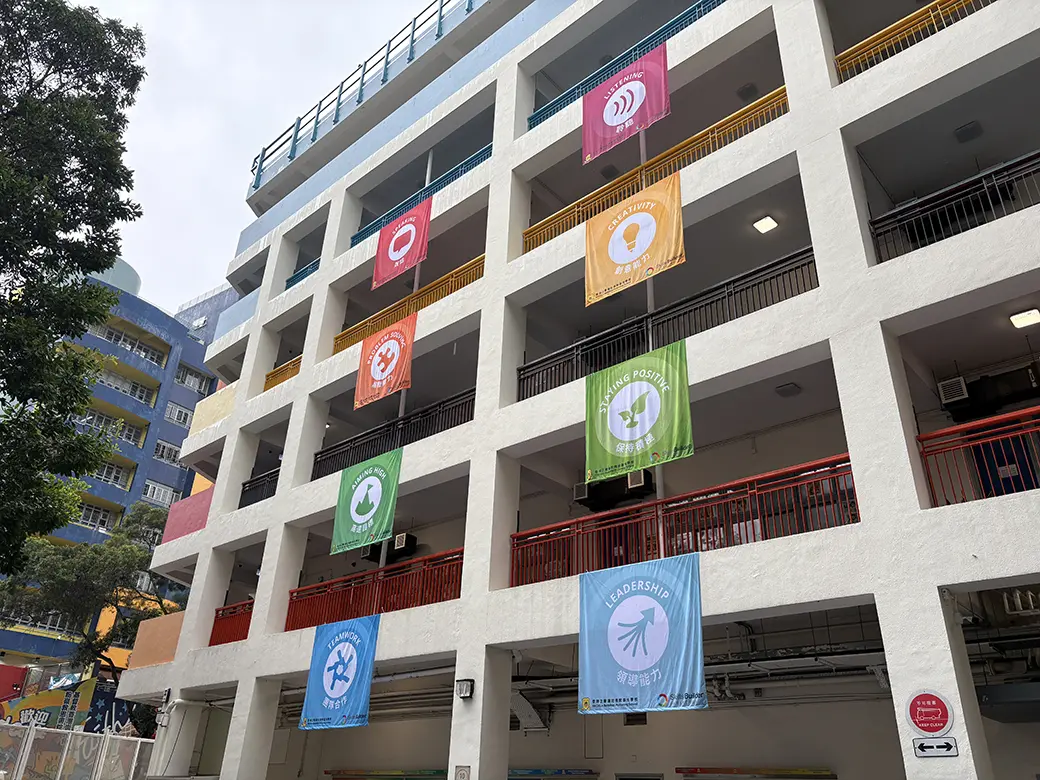To continue to promote and reinforce essential skills and create a common language of essential skills in our school, we include essential skills on visual boards throughout our school. We have also initiated a school-wide promotion, inviting students to design essential skills posters and banners that have been displayed around the school. To promote a shared culture, we created eight large flags representing each essential skill, displayed throughout the school. This visual presence helped unify teachers, students, and families under a common language of skill development.
As a specialist school, we have ensured that all the teachers and professionals at the school, e.g., speech therapists, have undergone continued training in Skills Builder to further develop their teaching practice. This helps to promote a consistent language and approach to essential skills. To enhance students' fundamental skills, we have implemented the "Skills Builder Badge Reward Program." Students record their participation and progress in various skills through their student portfolios. When students reach Step 3 or higher in a particular skill, they will receive a corresponding badge as a reward, which is presented during the morning assembly. This not only boosts students' confidence but also motivates them to further develop these skills.
This year, we also introduced a Parent Workshop: Inviting Parents to attend and explain the concept of "Skills Education" and the Skills Builder Framework, which ensures that our students can continue to build their essential skills outside of the classroom.
























